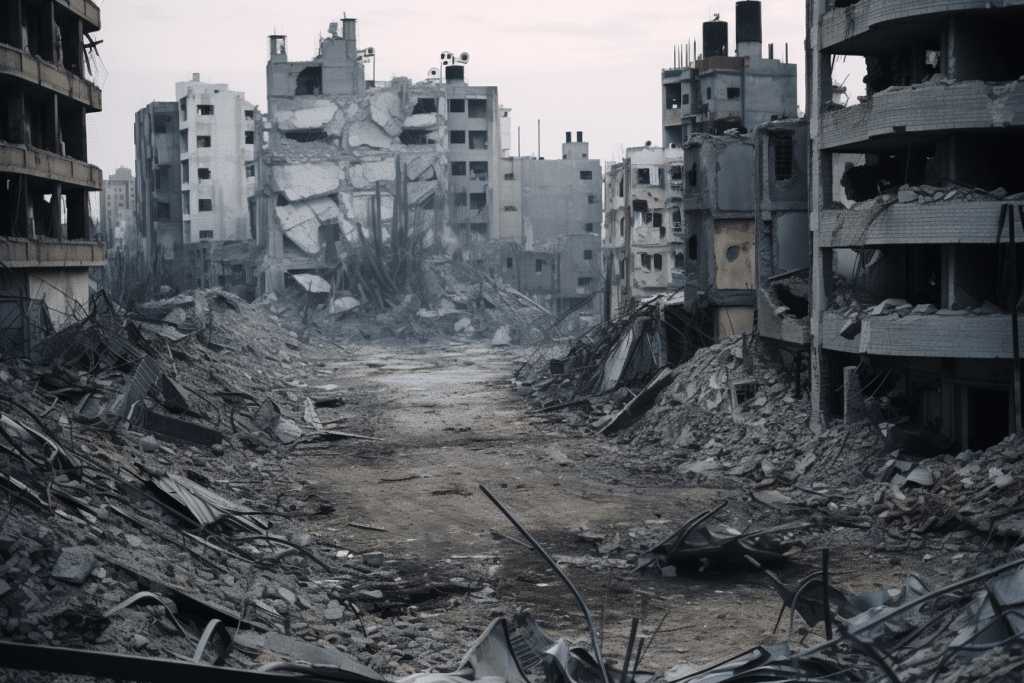
In the face of rising death tolls and widespread devastation, Israel escalated its airstrike campaign in Gaza this past Monday. At the same time, the United States urged Israel to halt its expected ground invasion to allow time for negotiations regarding the hostages taken by Hamas militants. “A third small aid convoy from Egypt entered Gaza, where the population of 2.3 million has been running out of food, water, and medicine under Israel’s two-week seal,” highlights the dire circumstances faced by the people in Gaza.
Israel’s airstrikes have wreaked havoc across Gaza, resulting in hundreds of deaths and overwhelming the already strained medical facilities. The war has also spread fears of further escalation in the region, with Iranian-backed fighters warning of potential ramifications, including targeting U.S. forces deployed in the Middle East. In response, the U.S. has advised Hezbollah in Lebanon and other groups not to join the fight. Meanwhile, the U.S. is working with regional mediators to secure the release of individuals captured by Hamas, with a U.S. official stating, “It was unclear how much the argument will ‘move the needle’ on Israeli thinking.”
Despite the unimaginable hardship faced by the people of Gaza, hope persists as aid continues to flow into the region, albeit not at the scale required to address the humanitarian crisis fully. The shared goal of ending this conflict and alleviating the suffering of the people caught in the crossfire remains paramount. The efforts of regional and global powers to mediate and bring about a resolution are crucial in preventing further loss of innocent lives and ensuring that peace and stability are restored in the region.
